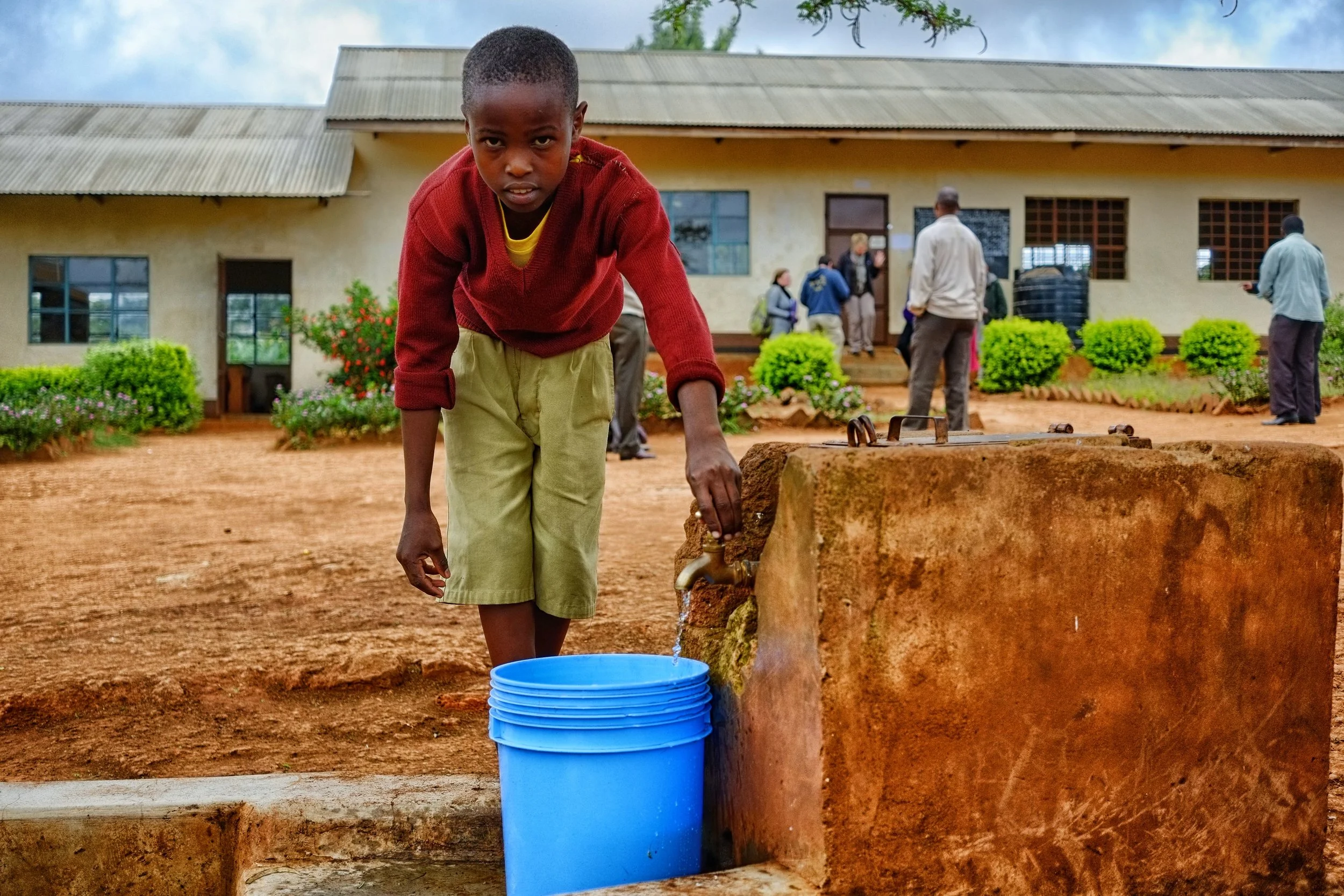Written by FoTZC Directors Mary Loeken and Katherine Record
Access to adequate supplies of safe water for drinking and food preparation is an unmet need in many low-income countries. The need is always dire in Sub-Saharan Africa, but is especially acute right now as eastern Sub-Saharan Africa is currently undergoing a severe drought. In remote regions in Tanzania, as in many parts of the world, streams and rivers may be the sole source of water, and is not safe for drinking or bathing. This can result in a multitude of preventable diseases including cholera, botulism, diarrhea and dysentery, typhoid, and river blindness. Moreover, women are disproportionately burdened by the effort to supply their families with clean water - 90% of water collection is done by women and girls - resulting in walking up to 8 hours per day to collect water. This leaves them with reduced time to engage in childcare, education, the workforce, attend healthcare appointments (often referred to as "time poverty"). In addition, requiring women and girls to travel long distances to collect water increases risk of sexual assault, as they travel alone. In Tanzania, school attendance is 12% higher among girls who live in homes located no more than 15 minutes from a clean water source; there is no difference in school attendance by boys. Having a proximate clean water source results in improved health outcomes, increased productivity, increased school attendance by girls, and movement toward gender equality.
When FoTZC constructs housing for teachers, or new classrooms, we usually include a SIM tank (a vessel that collects and stores rain water in a way that ensures it remains potable). This provides water to both the school and, ideally, the community. However, water collected in SIM tanks is inadequate for community, and sometimes, school needs, especially during times of drought. Thus, we have recently begun to work to increase the supply of clean water to communities in the Arusha Region, Ngorongoro District, Loliondo area, and Oloipiri Ward with boreholes, which are deep, narrow shafts in the ground from which water can be pumped. We are working with local contractors who find underground aquifers, dig the borehole, and install a pump. We have three borehole projects in progress, and two more that are planned, all located near schools or the dispensary where FoTZC has already undertaken projects, and which are in close proximity of homes to which water can be transported. The cost of a borehole is $40,000-45,000.
Elizabeth Mwakajila, FoTZC Project Coordinator in Tanzania explained the immediate impact of the availability of clean water at Sukenya Primary School. Of the 459 students at the school, the “number of absentees due to sickness were a maximum of 105 [on a given day] before water was available at the school. The pupils were sick as well as not attending school [in order to go] miles away to search for water for domestic use. [Since water has been available at the school] the absentee number has dropped to 38 students.” This is a stunning decrease in school absenteeism, and we expect to see reports from the Dispensary shortly that the number of patients coming in with water-borne diseases is decreasing!





